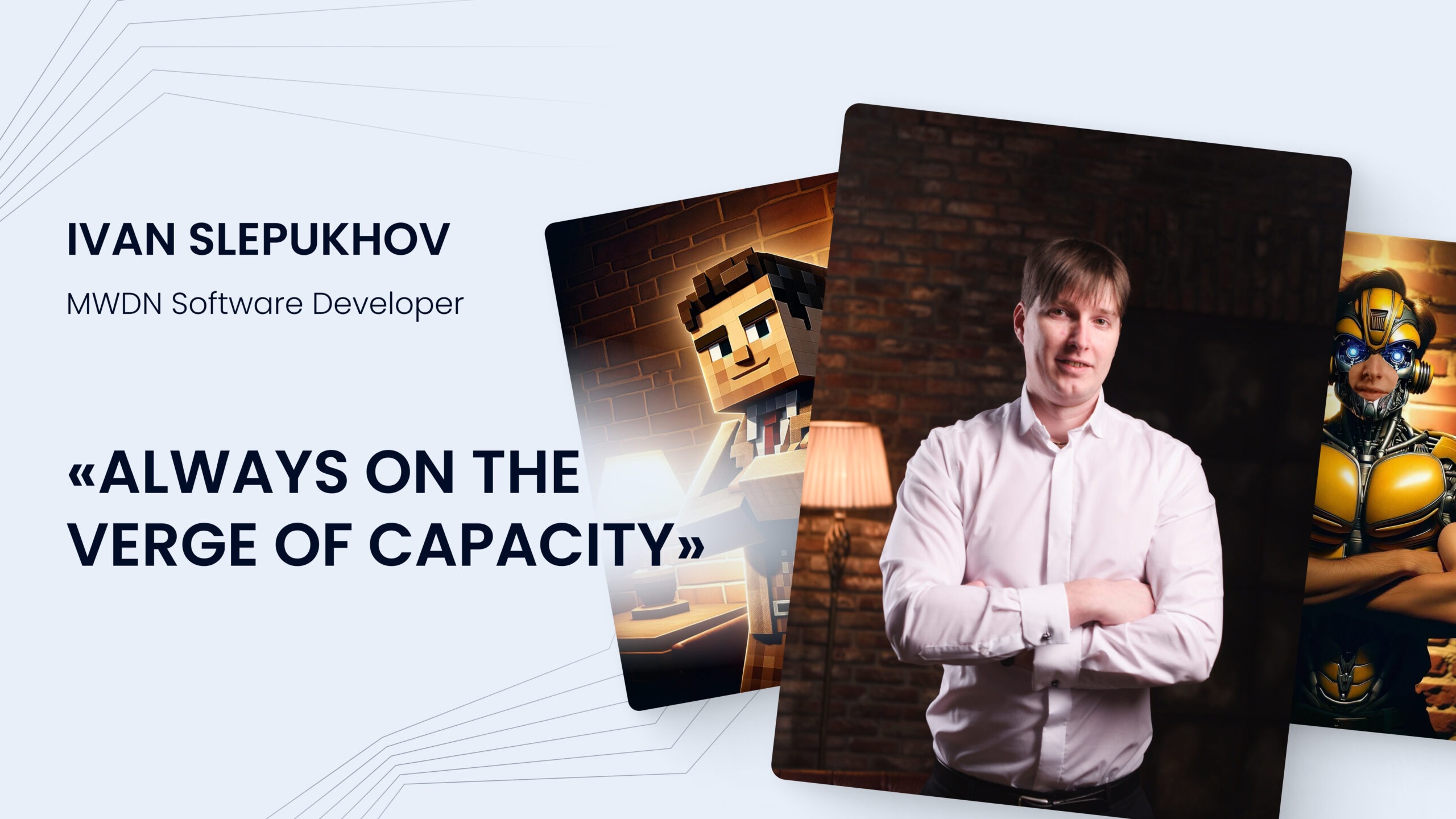
Today, we talked to MWDN software developer Ivan Slepukhov. How does he manage to work 60-80 hours a week and stay productive? What does he think of AI and future technologies? Check out his interview below!
Key bullet points
- Ivan Slepukhov
- 38 y.o.
- Was born in Crimea, Yalta
- Senior Backend Developer (Gett project)
- At MWDN since 2008
My family includes two siblings – a twin sister and a brother who’s seven years older. While I don’t have children myself, my girlfriend does. We live together, and I’m happy to help raise her two daughters.
Our furry companions include a chinchilla who’s been with me for almost ten years and a recent addition – a cat my girls persuaded me to get just before the full-scale invasion.
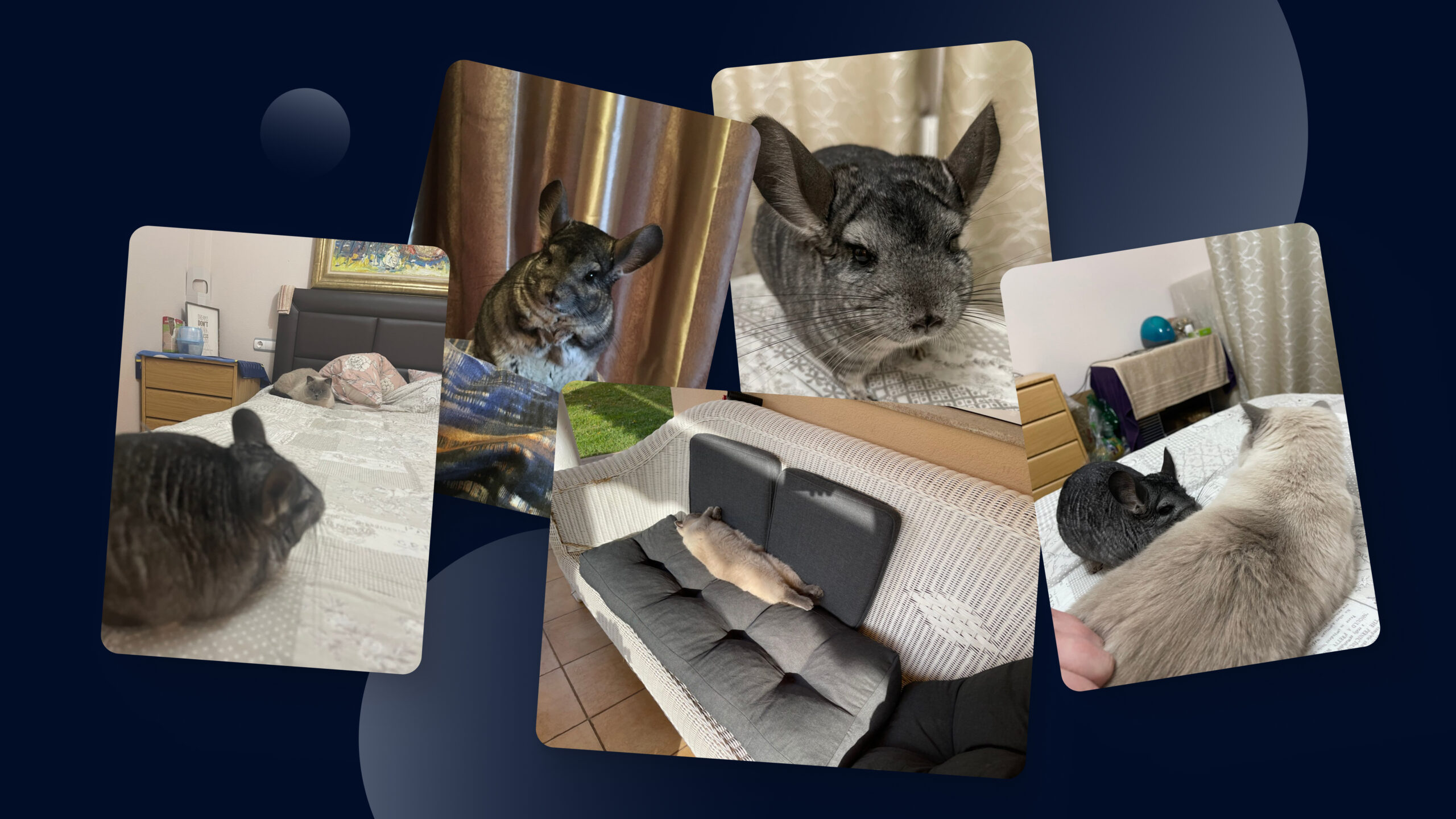
Education
After high school, I set my sights on Kharkiv for university. While my parents envisioned me following my brother’s path in law, computers had always captivated me. In 10th grade, I discovered the Kharkiv National University of Radioelectronics (KNUR) – a breeding ground for developers and computer scientists, according to my friends. In 2002, my dream came true as I enrolled in KNUR’s Faculty of Computer Engineering and Management.
A couple of years into the program, career thoughts started creeping in. The idea of being a “banker” held a certain allure, although I wasn’t fully aware of their day-to-day tasks. It seemed akin to being a high-level accountant. Intrigued by the banking sector, I learned about KNUR’s dedicated banking systems faculty, which is a paid program. Despite the financial strain on my parents, their unwavering support for my growth fueled my decision. So, by the end of my second year, I embarked on a dual journey, studying full-time evenings at the banking faculty to earn a second higher education.
The result? Two higher technical degrees – one in “Computer Systems and Networks” and the other in “Electronic Devices and Automation of Banking Systems.” And yes, I did eventually land that coveted banking job – in my 5th year at the institute.
How many hours a week do you usually work? How do you do that?
Sometimes, I take on part-time projects. On average, I work 60 to 80 hours a week – that’s my main job plus part-time projects. Sometimes, I give myself a break when I can.
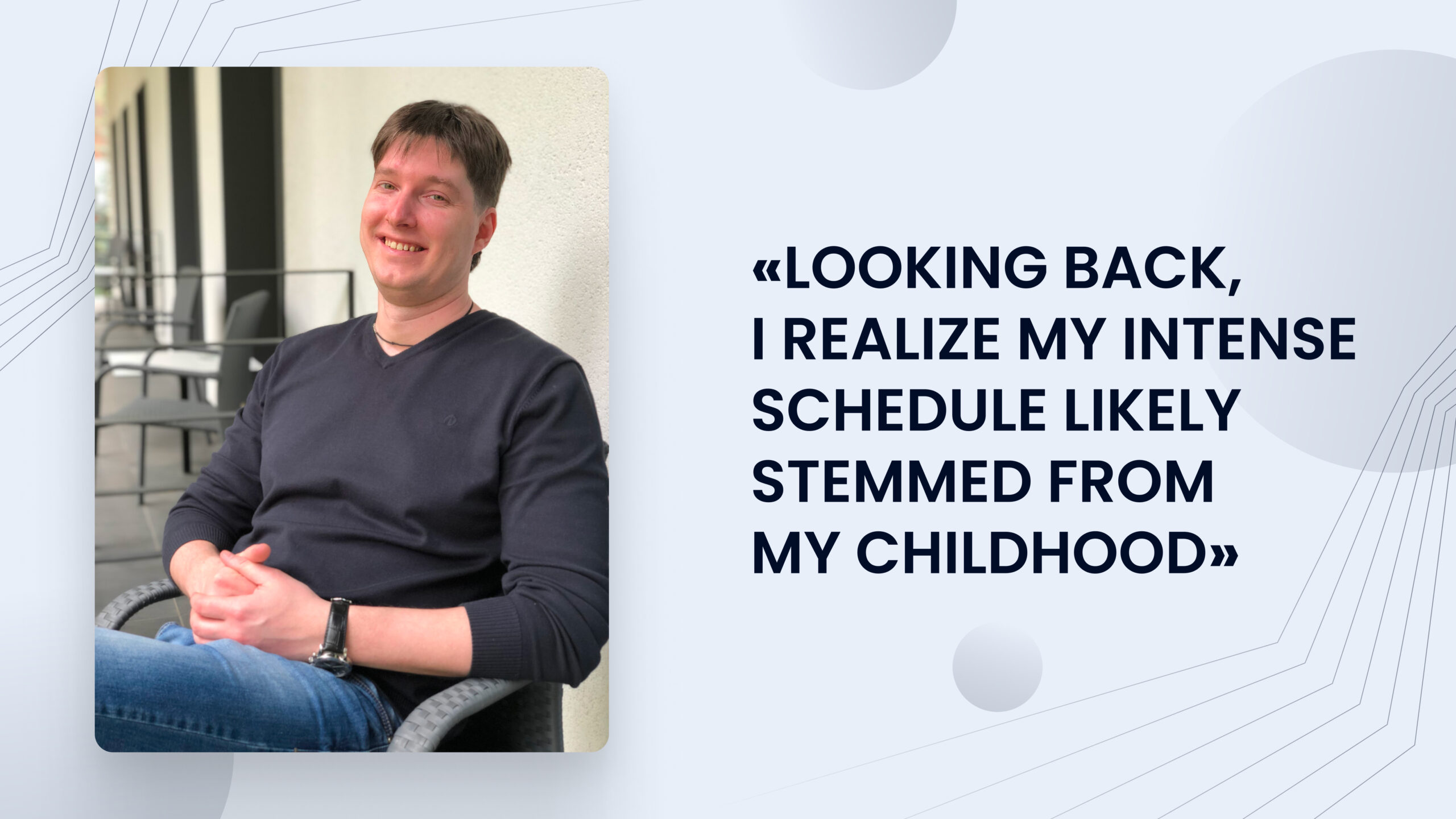
Looking back, I realize my intense schedule likely stemmed from my childhood. My parents enrolled my sister and me in a variety of extracurricular activities alongside school. Art school, basketball, extra English classes – the list goes on!
This packed routine continued even after graduating from high school, as I pursued a double degree in university. While computer science was my major, with a focus on DevOps, software development remained a passionate hobby for me. Somehow, I thrived under the constant pressure of juggling multiple commitments.
What fuels my productivity now? At the core lies motivation, followed by discipline. But what drives my motivation? While financial rewards are certainly a factor, the opportunity to learn and develop is equally important. This constant need for growth keeps me engaged and pushing myself forward.
What challenges have you faced while working on several projects simultaneously?
With only 24 hours in a day, balancing a demanding main job with side projects can be a real challenge. The biggest hurdle is probably context switching – mentally shifting gears between different technologies. One moment, I might be debugging backend code for my main job, and the next, I need to jump into frontend development for a side project. It requires some focus and mental agility.
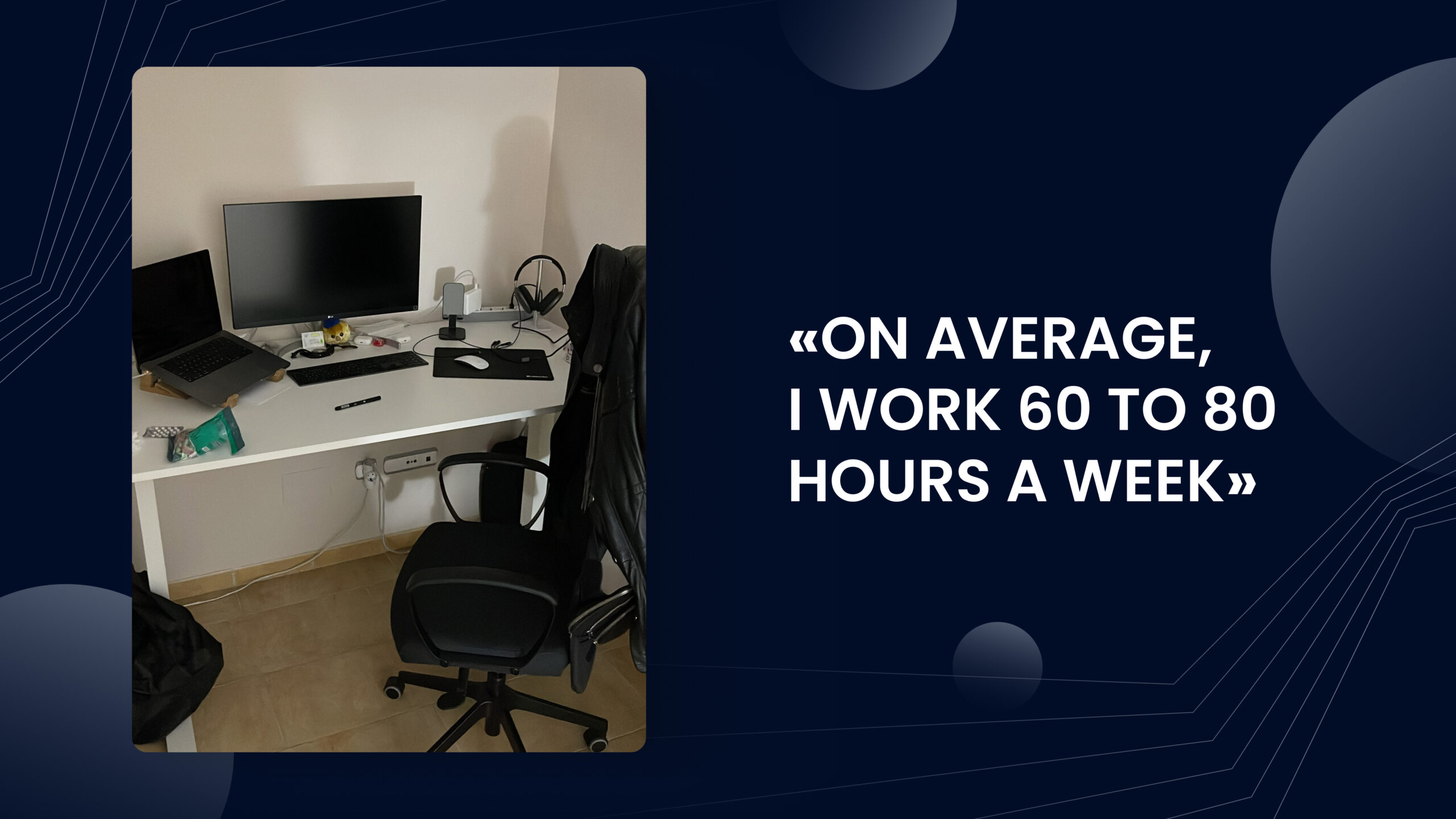
What are your thoughts on burning out?
Burnout is a constant concern for me. The thought of reaching that point, where even the will to work disappears, is a frightening prospect. The weight of the war in Ukraine and global events only intensifies this feeling. It’s easy to feel like giving up altogether. I’ve seen this not just in myself but in others as well.
The key to avoiding burnout is taking breaks and giving your mind a rest. While carving out some time can be difficult, I actively seek ways to “mind release” and recharge. Before the war, this might involve hitting the gym, grabbing a drink at midnight with a friend, or even just going for a late-night walk. Sometimes, a simple activity like midnight washing the car at a 24-hour car wash was enough to refresh my perspective and allow me to return to work with renewed energy. While opportunities are more limited now, even doing chores or fixing things around the house can provide the mental break I need.
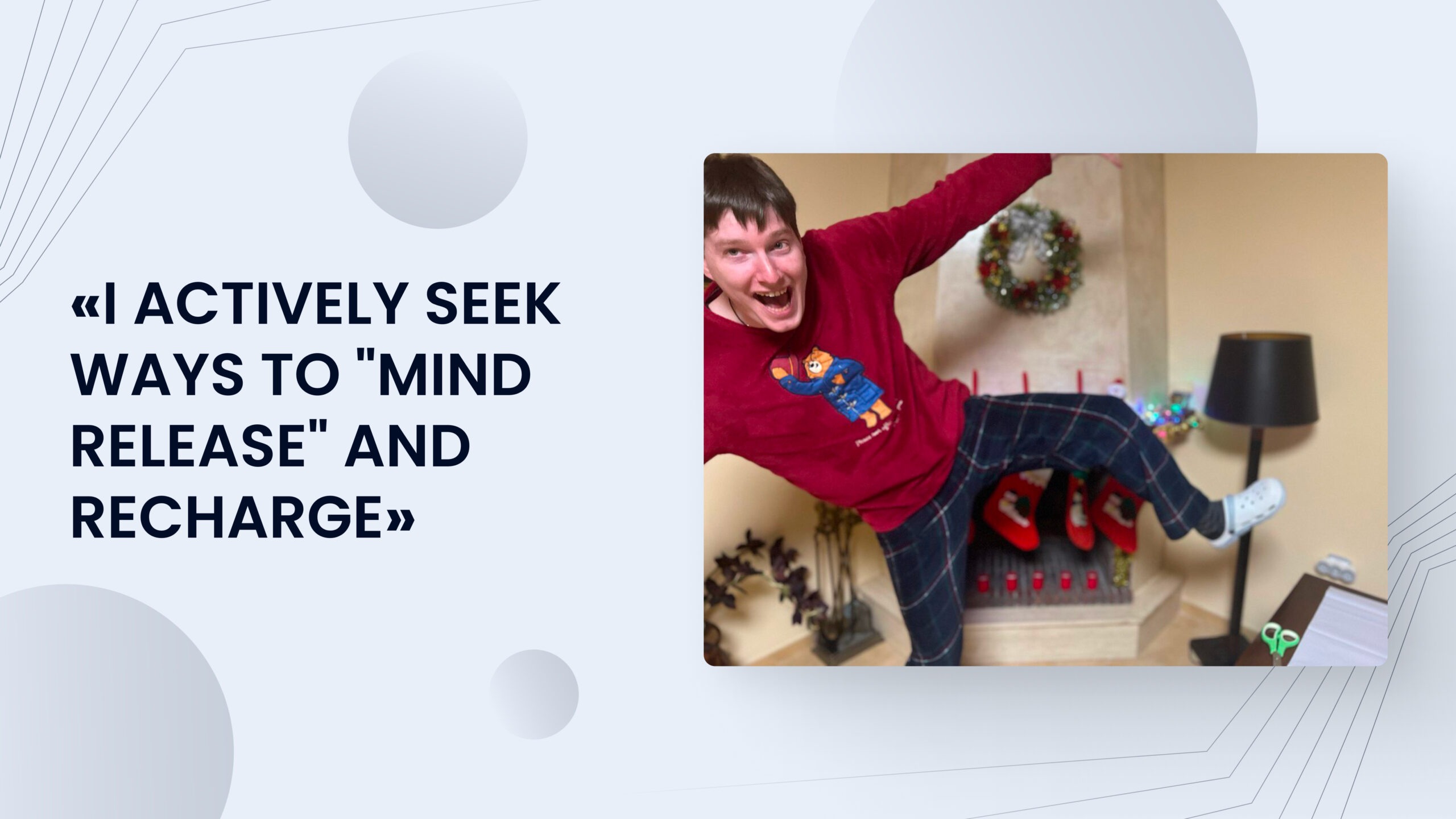
What would you do if you were not a developer?
Before the war, I actually thought of studying psychology instead of my part-time projects. I like to read psychology books.
At university, I even found myself drawn to the medical encyclopedia, briefly entertaining the idea of becoming a surgeon – the thought of helping people and saving lives held a powerful allure. However, the immense responsibility and pressure of the profession made me hesitant. Frankly, I don’t know how surgeons handle it – I wouldn’t be able to stomach the weight of those decisions.
Ultimately, I believe anyone can achieve anything with dedication and perseverance. When passion is also present, the journey becomes truly fulfilling.
Is there anything you want to try in the future, or does the current work fully fill you?
Of course, I want to develop, and I always try to do it. I crave constant development, and the thought of everything becoming routine fills me with dread. While a part of me yearns for stability and peace, it seems that’s not in my cards. I believe that we should always try to be better than we were yesterday.
One of my career goals is to move into management. Unfortunately, at my current project with Gett, contractors like myself aren’t eligible for those positions. This lack of experience is a concern, but it doesn’t deter me. I actively seek opportunities to learn indirectly, preparing myself for future possibilities.
Beyond coding, I’ve ventured into co-founding a non-IT business. While it wasn’t a complete success, the experience was invaluable. I also have several ideas for my own IT projects, but sometimes self-doubt creeps in. However, I’m learning to reframe it as a lack of time – a challenge I can overcome through better planning and prioritization.
Technologies of the future and the past
I have no commitment to one technology, I am a maximalist, I want to try everything: AI, web, mobile technologies, server solutions, new approaches to data processing… or better yet, altogether. In fact, this is how the modern world operates – when everything is developing all at once.
While I don’t have extensive experience in AI yet, I’m actively bridging that gap. I’m currently diving into several Udemy courses and a book I snagged on Amazon. AI is a rapidly developing field, and with the right knowledge and skills, it can be applied to countless areas. I believe it holds the key to the future.
Beyond AI, I’m constantly improving my skills in Golang, Ruby, and React. I’m seriously considering dedicating some time to learning React Native and building a hybrid application. Fingers crossed, I can squeeze it into my schedule!
It’s fascinating to witness the rise and fall of technologies. While some fade away as unsuccessful attempts, they contribute valuable lessons for future innovations. Others served us well in their time, tackling the challenges of their era. Ultimately, the ever-evolving world demands new solutions, and past technologies simply couldn’t keep pace with modern problems.
Take the internet for example. Just 15 years ago, not everyone had access, and downloading a measly 3 MB song took half the night – that was considered fast back then! My first computer was a shadow of its power compared to today’s mobile phones.
At the age of 16, I had an acquaintance who was much older than me, and he told me: “Why are you doing all this programming thing? It’s useless; they’ve already invented everything they could.” His words couldn’t have been more wrong!
AI
Of course, I use Copilot, ChatGPT, and some other AI tools in my work. I like it a lot! “These programmers always come up with some weird ideas” ©.
I believe that there will be even more projects in the future, and we will see even cooler projects than ChatGPT or Dall-e. Such technologies can make big breakthroughs in medicine and other fields.
But there are not only benefits and good things, are there? When I was a kid, every boy’s dream was “a remote-control helicopter.” And now, such “helicopters” fly over Ukraine (I’m talking about drones) and kill people, launch missiles, and bring a lot of grief to people. I don’t think that the people who created the toy planned for the idea itself to evolve into a deadly weapon.
The same applies to AI. Its potential benefits are vast, but so are the potential dangers. Thankfully, AI isn’t yet making independent decisions (and let’s hope it stays that way!). Ultimately, the future depends on us. Some dream of building cities, while others seek destruction.
What should your daughters learn today to be demanded by the labor market in 10-15 years?
I constantly think about it and am very worried as it seems to me that modern technologies might do more harm than good to their education.
During the coronavirus and now during the war, thanks to technology, girls can study at least online, even in a shelter (or basement). But at the same time, other technologies discourage them from learning.
I don’t yet know what professions they will choose and can’t advise them because everything changes quickly. And again, my parents wanted me to become a lawyer, but about a year before entering university, they saw that I was not at all interested in this. They gave me a choice, supported my choice, helped, and guided me (even though I knew it was very difficult for them).
It seems to me that I have two main tasks regarding girls’ education. The most important thing is to teach them to learn and not be afraid to learn. The second is to show them the possibilities so that they can choose what they really like. If they make a mistake, it won’t be the “end of the world,” and they will be able to adapt quickly and learn.
What will happen in the future?
While the concept of a technological singularity – a hypothetical point where AI surpasses human intelligence – is fascinating, it seems unlikely to occur in our lifetime. The more immediate concern lies in humanity’s potential to self-destruct before reaching that point, as evidenced by current global events.
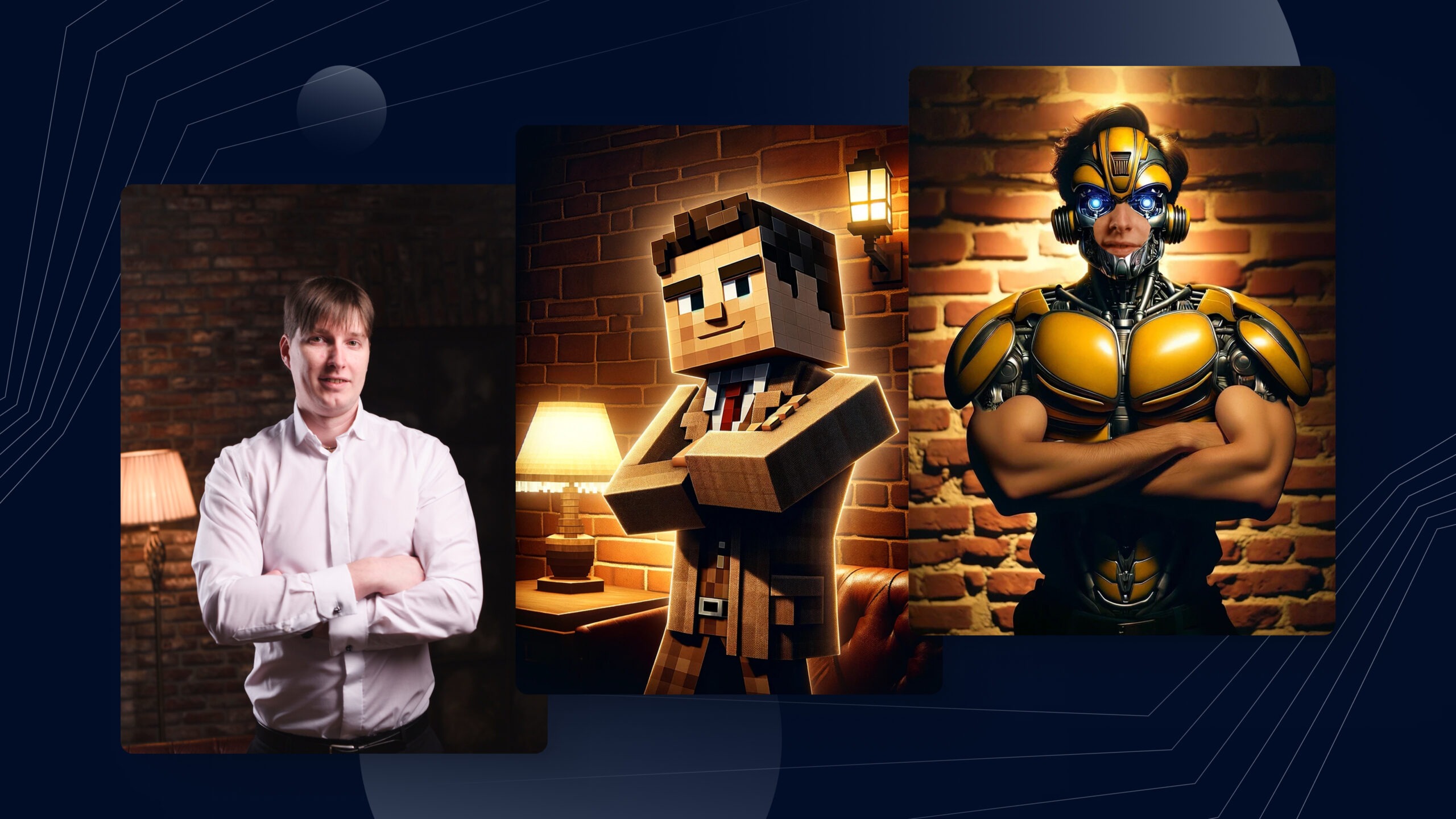
However, I choose to remain optimistic. I believe AI can be a powerful tool for good, used to create and solve problems, not destroy. Ultimately, the future lies in the hands of the next generation – the children growing up today. By investing in their education and fostering responsible AI development, we can ensure a future where humans and AI collaborate for the betterment of society.
Content
- 1 Key bullet points
- 2 Education
- 3 How many hours a week do you usually work? How do you do that?
- 4 What challenges have you faced while working on several projects simultaneously?
- 5 What are your thoughts on burning out?
- 6 What would you do if you were not a developer?
- 7 Is there anything you want to try in the future, or does the current work fully fill you?
- 8 Technologies of the future and the past
- 9 AI
- 10 What should your daughters learn today to be demanded by the labor market in 10-15 years?
- 11 What will happen in the future?
